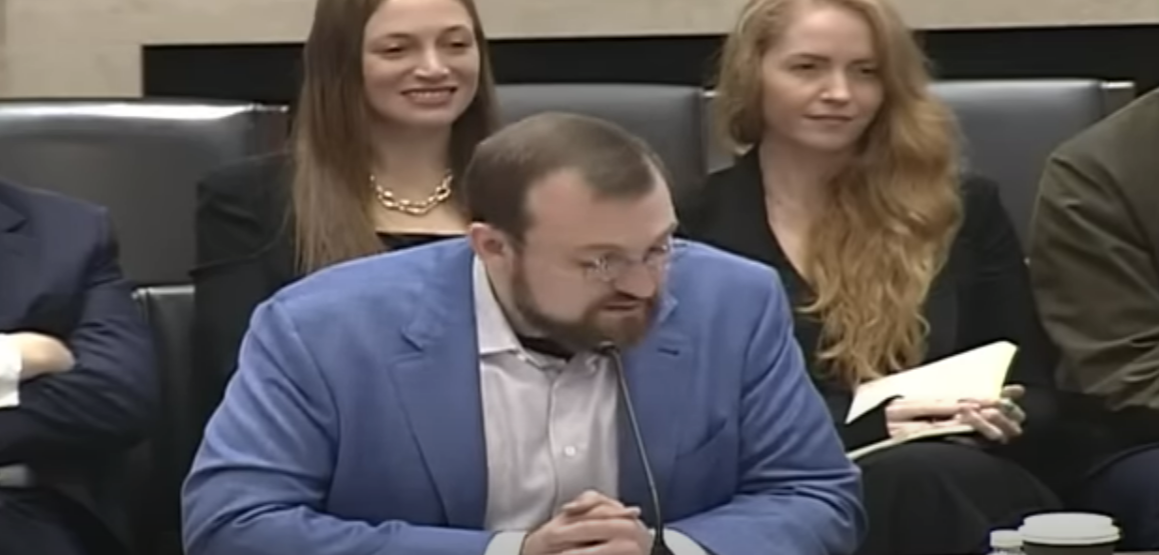Charles Hoskinson, CEO of IOHK, testified before the U.S. House of Representatives’ Crypto Committee (HoRCC) on the future of crypto assets regulation on June 23’rd, 2022, representing the world’s crypto space in stellar, stately decorum. From my vantage, the crypto world could simply not have a better spokesman when it comes to building rules for the regulation of crypto.
It has been amazing to watch this entire hearing and see America step up to be a leader in protecting the crypto space for everyone, as opposed to regulating it out of existence in the U.S. out of fear and a lack of understanding. This committee hearing has restored my faith in our government, which for me has been somewhat shaken over the years. Like Charles Hoskinson, I must applaud each individual in the HoRCC hearing. Every opinion voiced (for the most part), appeared to be advocating in the best interest of their constituents, and coming from a genuine place of concern and responsibility for the common good. It is awe inspiring to me, to see our great government working together, lucid, free from obvious ulterior motive. I have never been so proud, seeing the democratic process at work (sounds so cheesy when it’s written).
With the government on a positive trajectory towards reasonable crypto guidelines and oversight,
“I am incredibly bullish for the future of crypto (recession and war not withstanding).”
(Not financial advice, never invest more than you are willing to lose. DYOR!) Other countries will see this amazing first step towards the proper regulation and oversight of crypto and likely follow suit and align with the U.S. with regards to this new outlook on crypto regulation. The United States’ proactive interest in properly overseeing crypto will now establish our nation as a model to which the world can follow.
The predominant theme that I took away from the hearing was that the way crypto will be regulated will be founded in something called first principles. Now those of you who love Cardano, IOHK, and/or Charles Hoskinson will be no strangers to this concept. First principles are (to my knowledge), Charles’ brain child and refers to core values or beliefs. When you are trying to regulate something that is fluid, arbitrary regulation will be akin to a sieve. For crypto, we need regulation that is based on principles, a baseline of conduct if you will. This will act as containers which are measurable, and enforceable.
The general consensus at the hearing seemed to be that the Commodity Futures Trading Commission (CFTC), is the most capable entity to takeover the oversight of crypto. Chairman Maloney directly asked Dr. Christopher Blummer, who was testifying, the simple question, “Is the CFTC up to that? (meaning the job)” (Time stamp38:49/1:45:03). To which, Dr. Blummer responded simply, “The CFTC is up to the job.” Dr. Blummer then expounded on the reasoning:
- The CFTC’s experience with swaps and derivatives
- This new task of regulating crypto would be a natural evolutionary progression for the department
(time stamp 39:04/1:45:03)
HoRCC Hearing link for time stamps: https://youtu.be/K4ZM2AlGT-s
The Chair then asked Acting Deputy Vincent McGonagle of the CFTC, what the CFTC oversight of crypto should look like. Director McGonagle replied (time stamp 40:09/1:45:03):
- The CFTC thinks about how individuals are interested in the change of value of that commodity or digital asset
- How that transaction or the interest in that change of value can be regulated
- That is what our system of regulation is meant to accomplish
- We look at the market participants that are interested in trading value
- They are doing that in a centralized marketplace
- With price transparency
- With execution certainty
- With the ability to get the product that they are interested in and want
- They are able to do these things in a safe and secure manor
Director McGonagle stressed several times that to be successful, the CFTC would have to be properly funded and staffed to accomplish that mission.
To me, the CFTC having authority to regulate crypto seems like a logical choice.
The only counterpoint seemed to be when Mr. Scott cited a concern during the hearing (time-1:27:08/1:45:05), (after apologizing for being late due to meeting with a constituent), regarding the number crypto assets which would need to be regulated (estimated to be about 20,000), to the number of employees at the Commodity Futures Trading Commission (CFTC) (about 200), which, in their combined estimation came out to be about a 100:1 ratio. His concern seems somewhat unfounded to me, as the SEC by its own admission governs over 28,000 entities:
“We monitor the activities of more than 28,000 entities in the securities industry, including investment advisers, broker-dealers, and securities exchanges.”Nov 22, 2021 What We Do SEC.gov
While Charles Hoskinson made a stunning appearance at the hearing, I’d like to highlight Jonathan Levin.

Jonathan has up until now from what I have seen, taken a lot of flack for crypto. Despite having only a short testimony in the hearing, he received, in my opinion, a certain measure of acknowledgement from our government. He along with many others such as XRP have been running with the torch for all of us, and I think that it’s about time that the crypto community acknowledge and lift up these hero’s, many of which are simply mild mannered scientists, thrown to the wolves of politics.
Charles Hoskinson’s testimony will likely resonate forever as bringing into view the initial template of how we will govern crypto assets. According to all of the testimony that I heard, it appears to me that crypto assets will be weighed towards commodities by default with the CFTC being the overwatch. While this is excellent news for crypto, it has been cited in the testimony that deciding factors for crypto asset Commodity vs. Security’s final primer will extend well beyond decentralization. The gist is that with the CFTC overseeing crypto, they will be looking for market interest, value, liquidity, core principles, and seemingly above all, resistance to outside manipulation. Director McGonagle also warned that garbage projects which don’t comply or offer value will be trashed. From what I have seen, I really like Director McGonagle for the job of overseeing crypto through the CFTC at this point. His philosophy from what I could glean from his comments seems to be the following: (I am using my own words)
- CFTC will give crypto assets a set of guidelines in which to follow
- They must apply to the CFTC to be listed
- Those assets which are accepted are expected to both comply with all the core principles and self police
- Those who do not comply will be swiftly and severely punished
- The guidelines will be designed as not to impair progress nor innovation
- Entities which do not provide enough: market interest, value, liquidity, security, reliability, safety, transparency, and resistance to outside manipulation, will be trashed









